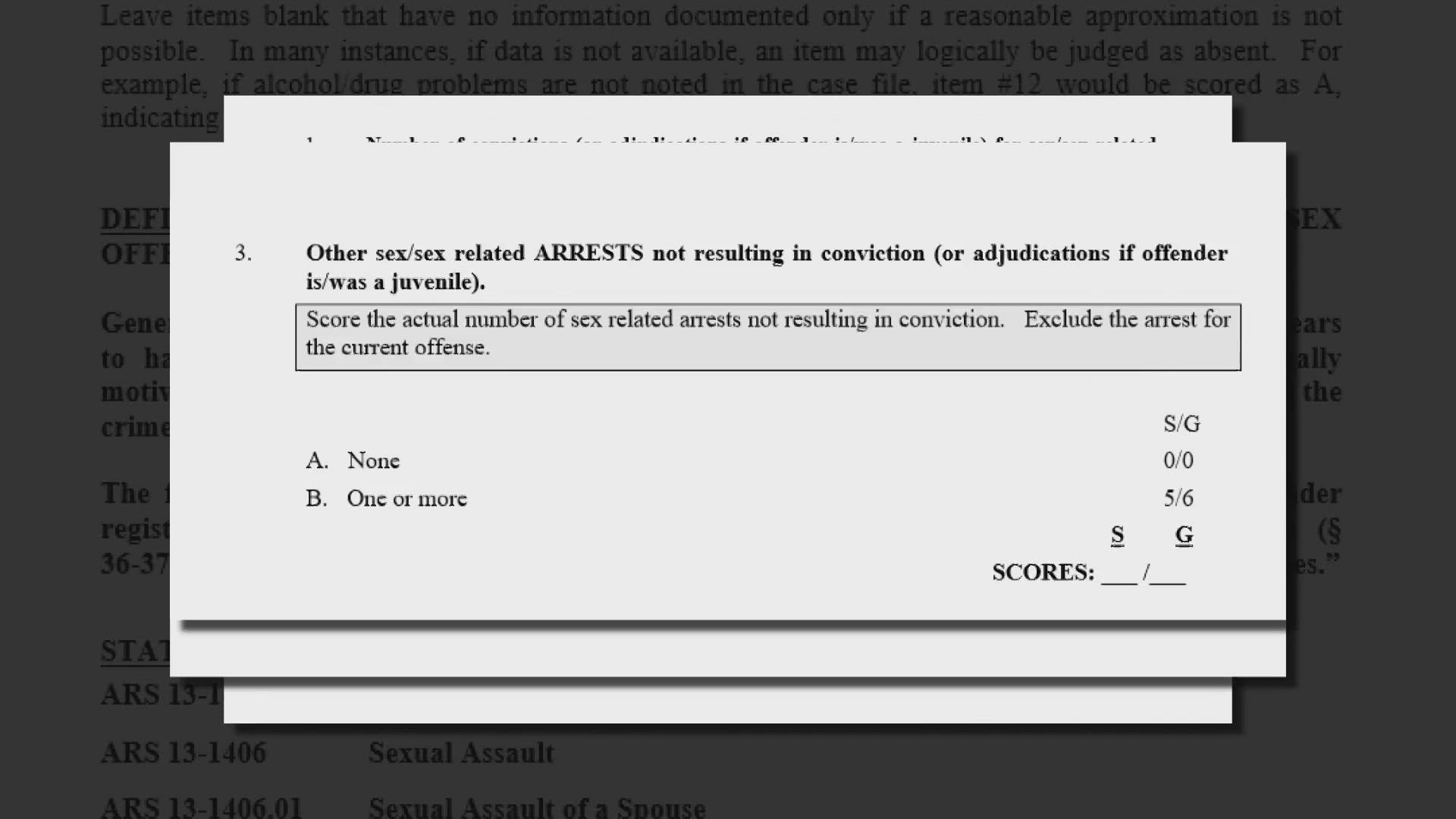PHOENIX — An advocate for survivors of sexual abuse is calling for changes in how Arizona registers sex offenders.
“A victim's story does not end when their case closes," said Kayleigh Kozak.
Because Kayleigh Kozak shared her story, her name is etched into law.
“I am a survivor of childhood sexual abuse," Kayleigh said.
Kayleigh was sexually abused in middle school and has advocated creating Kayleigh's Law so she and other survivors can petition the court for a lifetime injunction, which prevents offenders from ever contacting their victims again.
But Kayleigh said her work is not finished.
In addition to pushing for the passage of her law in every state, she's advocating for the passage of other bills in Arizona that would change the public registry.
'It doesn't make any sense'
“When I discovered this, I was very sickened and felt very disheartened that these kinds of questions are in there," Kayleigh said.
She's talking about the 19-question assessment that determines what level a sex offender is designated.
Level One offenders are considered the lowest risk.
The assessment does not look at the crimes committed. Instead, it uses a list of 19 questions to make the assessment. One of the questions asks about the gender of the victim.
If the victim is a girl, the offender is given zero points. However, if the victim is a boy, they are given three points.
“Why is it that a female is less of a risk than a male? We know, statistically, females have a higher chance of being sexually abused," Kayleigh said. "But if they're the ones that are sexually abused, the perpetrator is less of a risk to the community? It doesn't make any sense.”
Level One offenders are not required to be listed on the state's public sex offender registry.
“You can have an offender that has been convicted of a sexual crime against a child, multiple counts, and they can score good on this risk assessment, and they will not be on the DPS sex offender website," Kayleigh said.
It's the same complaint Dawn King made after finding out the man who went to prison for abusing her daughter is not on the public database. He was designated Level One.
“How in the world did this happen?” said Dawn King.
Senate Bill 1583
Now, Kayleigh is pushing for the passage of SB1583, which would focus on the crimes rather than the assessment. The bill would require all sex offenders convicted of a dangerous crime against children to be listed on the database.
“Every mother has a right to know who lives next door to them," said another bill supporter.
“The non-public nature of the level one registration is a joke and this bill helps to make it less of a joke," said a man who showed up to the Senate to support the bill.
'Nobody should be defined by one moment in their life': Critics push back
The bill is getting pushback as some argue the sex offender registry does not prevent crime or allow those who have served their sentence to get a second chance.
“Our net gets wider and wider and people who pose no danger are caught up in it," said one woman who argued against the bill.
“Nobody should be defined by one moment in their life. I am more than a survivor and the person that harmed me is more than a sex offender," said another woman who said she was a survivor of abuse.
Kayleigh responded to the criticism of the bill.
“I understand grace and compassion and second chances," Kayleigh said. "We can still be compassionate while holding these offenders accountable. And if they wanted a normal life that bad, they should have thought about that before they made the choices that they did.”
On Wednesday, the senate discussed the bill, and it is now on hold.
Kayleigh said her fight is far from over.
“Victims have no control over a song that comes out in the grocery store that triggers them, a car that drives by, a smell. It doesn't just go away. It never ends. We are always healing from what was done to us," Kayleigh said.
Up to Speed
Catch up on the latest news and stories on the 12News YouTube channel. Subscribe today.

